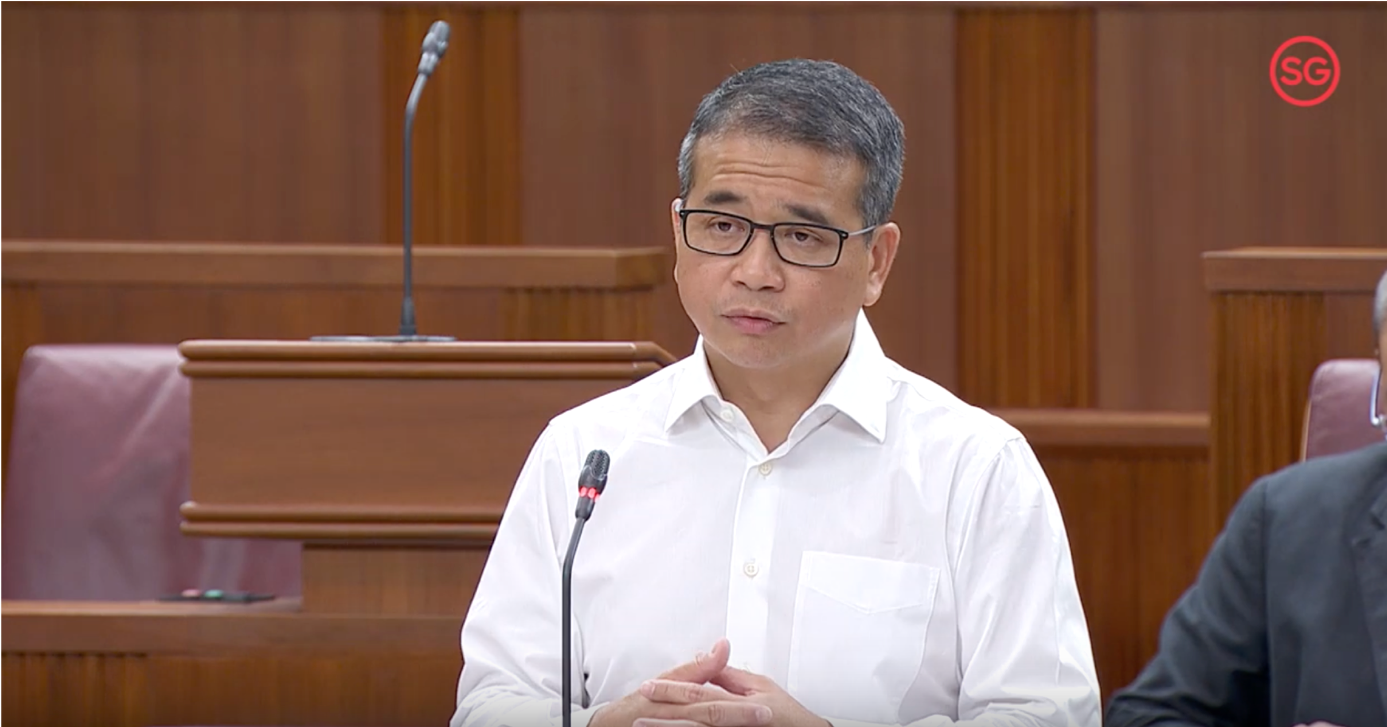Some say war never changes, but the nature of warfare has evolved.
Instead of attacking a target on the battlefield, a foreign adversary might intentionally sow confusion, mistrust, and discord among a population using new technology.
This divides them and undermines their trust in society and its institutions.
Hostile misinformation campaigns
Senior Minister of State for Law Edwin Tong highlighted recent examples of hostile foreign agents working to influence the domestic politics of other countries behind the scenes.
Speaking in Parliament on Feb. 12, he cited a few examples of misinformation used to sow discord:
- The 2016 U.S. Presidential election, where a foreign actor spread false narratives on divisive topics like gun control, LGBT rights, race and immigration. Over a period of two years, 126 million American Facebook users were exposed to ads generated by this hostile campaign.
- The 2016 UK referendum on Brexit, where 150,000 foreign-linked social media accounts tweeted over 45,000 pro-Brexit messages in the last 48 hours of the campaign.
- The 2017 French Presidential election, where Emmanuel Macron's campaign data was hacked and the leak spread by suspected bot accounts.
- Hostile information campaigns in the Netherlands and Germany, to undermine support for an EU-Ukraine trade deal and asylum policy.
- Armed conflict in the Ukraine, accelerated by disinformation spread through social media and foreign media channels aimed at undermining trust in public institutions.
Tong quoted Ruslan Deynychenko, the co-Founder of StopFake.org, a Ukranian organisation that counters disinformation, who said:
"... it might happen with any country that one day you can wake up and look in the window and see people with machine guns who kill each other, because somebody on TV persuaded them they should hate each other."
Donations are another tool
Besides online misinformation, foreign actors may also seek to influence politicians through funding and donations.
Tong referred to an example in Australia, where a politician allegedly accepted a donation from a foreign source and later contradicted his own party by supporting the foreign state's position.
He also mentioned New Zealand, where an opposition leader allegedly circumvented a law by disguising a donation made by a businessman linked to a foreign government.
Tong said:
"Indeed, today, information can easily be weaponised by foreign actors, at a low cost, and with anonymity and impunity. No country is immune."
Singapore has already come under attack by these new weapons.
Singapore is at risk
The SingHealth cyberattack was the largest such incident in our history, with the personal data of 1.5 million people stolen, and Prime Minister Lee Hsien Loong's medical records were targeted as well.
In November 2018, anti-establishment States Times Review published a false news story alleging corruption by Singapore authorities, which was potentially viewed by 800,000 people.
And Huang Jing, a professor at the Lee Kuan Yew School of Public Policy, was identified by MHA as an agent of influence of a foreign country in August 2017.
He and his wife were deported from Singapore.
As an open, highly-connected and diverse country, Singapore is especially vulnerable to such campaigns, Tong said.
According to him, the Singapore government will be considering additional measures to deal with these threats.
He said:
"The Select Committee had recommended that government consider measures to address both deliberate online falsehoods and also state-sponsored campaigns that threaten our national security. The government will consider the report and will also consider legislation in both these areas this year."
Related story:
Top image from Gov.sg's YouTube channel.
If you like what you read, follow us on Facebook, Instagram, Twitter and Telegram to get the latest updates.
